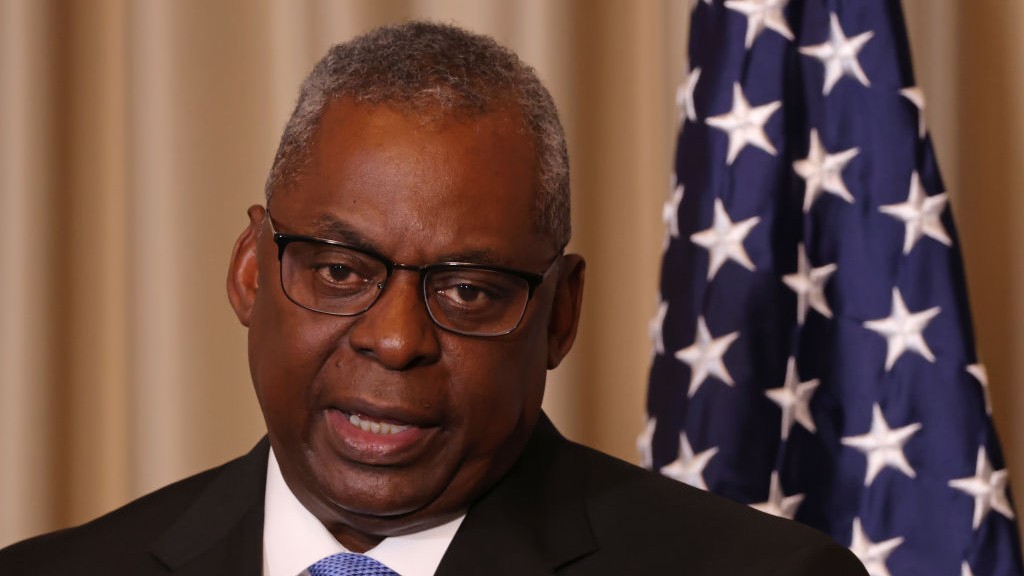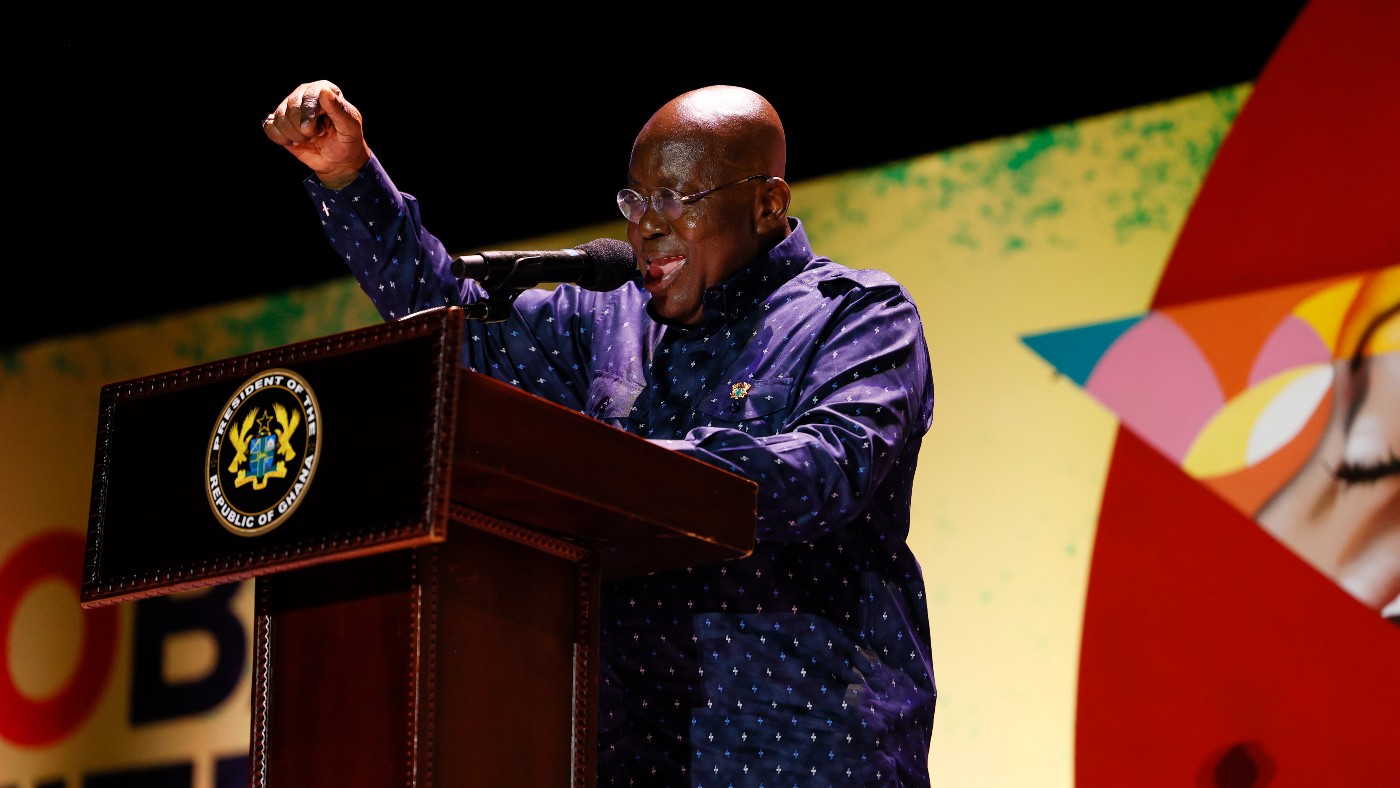Bursting Beijing’s balloon: what’s behind US response?
Incident triggered cancellation of US Secretary of State’s visit to China

A free daily email with the biggest news stories of the day – and the best features from TheWeek.com
You are now subscribed
Your newsletter sign-up was successful
On Saturday afternoon, six miles off the coast of South Carolina, a US F-22 fighter jet fired a Sidewinder air-to-air missile that blew a massive Chinese balloon out of the sky.
China’s Foreign Ministry immediately registered “strong discontent and protest” over the downing of what it insisted was a weather research aircraft that had flown over the US “totally accidentally”.
The missile strike brought an “explosive end to a drama that put a diplomatic crisis between the world’s two great powers onto television screens in real time”, said The New York Times.
The Week
Escape your echo chamber. Get the facts behind the news, plus analysis from multiple perspectives.

Sign up for The Week's Free Newsletters
From our morning news briefing to a weekly Good News Newsletter, get the best of The Week delivered directly to your inbox.
From our morning news briefing to a weekly Good News Newsletter, get the best of The Week delivered directly to your inbox.
The balloon’s “highly visible” flight over US sites including over a nuclear missile silo complex in Montana triggered the last-minute cancellation of a visit to China by Secretary of State Antony Blinken, “undermining an attempt by Beijing to mend its most important bilateral relationship”, said The Washington Post.
Amid a flurry of claims and counterclaims by the two superpowers, one key question remains unanswered: why was China flying what Washington claims was a surveillance balloon over the US? According to the Pentagon, Chinese spy satellites are capable of securing similar or better intelligence than any spy balloon.
If the downed aircraft was being used for surveillance, “the whole episode raises a lot of questions about decision-making in Beijing”, said The Guardian’s world affairs editor Julian Borger. “Either this was a case of the left hand not knowing what the right was doing, or it was possibly a deliberate attempt to sabotage any tension-soothing the Blinken trip might have achieved.”
Another possible explanation is that Beijing was “testing Joe Biden’s mettle”, Borger suggested.
A free daily email with the biggest news stories of the day – and the best features from TheWeek.com
It was almost certainly a test, said The Telegraph’s China correspondent Sophia Yan. Beijing may have flown the balloon over the nuclear complex “simply to show that it could”.
“It’s possible that being spotted was the whole point,” Arthur Holland Michel of the Carnegie Council for Ethics in International Affairs told the BBC. “China might be using the balloon to demonstrate that it has a sophisticated technological capability to penetrate US airspace without risking a serious escalation. In this regard, a balloon is a pretty ideal choice.”
Many experts believe that China’s aim was to cause the US as much embarrassment as possible. Before the balloon was shot down, Biden was criticised for being too soft on China, with Republican Joe Wilson calling on the president to resign over the “catastrophic spectacle”.
All this may be “playing straight into Beijing’s hand”, said The Telegraph’s Yan. The “finger-pointing frenzy” that the balloon unleashed “may be viewed in Beijing as a successful mission, rather than a failed one”.
This article first appeared in The Week’s Global Digest newsletter. Sign up for a preview of the international news agenda, sent to your inbox every Monday.
Arion McNicoll is a freelance writer at The Week Digital and was previously the UK website’s editor. He has also held senior editorial roles at CNN, The Times and The Sunday Times. Along with his writing work, he co-hosts “Today in History with The Retrospectors”, Rethink Audio’s flagship daily podcast, and is a regular panellist (and occasional stand-in host) on “The Week Unwrapped”. He is also a judge for The Publisher Podcast Awards.
-
 How the FCC’s ‘equal time’ rule works
How the FCC’s ‘equal time’ rule worksIn the Spotlight The law is at the heart of the Colbert-CBS conflict
-
 What is the endgame in the DHS shutdown?
What is the endgame in the DHS shutdown?Today’s Big Question Democrats want to rein in ICE’s immigration crackdown
-
 ‘Poor time management isn’t just an inconvenience’
‘Poor time management isn’t just an inconvenience’Instant Opinion Opinion, comment and editorials of the day
-
 10 things you need to know today: January 7, 2024
10 things you need to know today: January 7, 2024Daily Briefing White House reportedly left unaware of defense secretary’s hospitalization, Biden to deliver State of the Union address on March 7, and more
-
 10 things you need to know today: September 5, 2023
10 things you need to know today: September 5, 2023Daily Briefing President Biden courts unions on Labor Day, thousands leave Burning Man after being trapped by desert mud, and more
-
 The spiralling global rice crisis
The spiralling global rice crisisfeature India’s decision to ban exports is starting to have a domino effect around the world
-
 Netanyahu’s reforms: an existential threat to Israel?
Netanyahu’s reforms: an existential threat to Israel?feature The nation is divided over controversial move depriving Israel’s supreme court of the right to override government decisions
-
 A country still in crisis: Lebanon three years on from Beirut blast
A country still in crisis: Lebanon three years on from Beirut blastfeature Political, economic and criminal dramas are causing a damaging stalemate in the Middle East nation
-
 Ghana abolishes the death penalty
Ghana abolishes the death penaltyfeature It joins a growing list of African countries which are turning away from capital punishment
-
 EU-Tunisia agreement: a ‘dangerous’ deal to curb migration?
EU-Tunisia agreement: a ‘dangerous’ deal to curb migration?feature Brussels has pledged to give €100m to Tunisia to crack down on people smuggling and strengthen its borders
-
 The sinister side to India’s fantasy gaming craze
The sinister side to India’s fantasy gaming crazefeature Fantasy gaming is booming in India, despite the country's ban on gambling